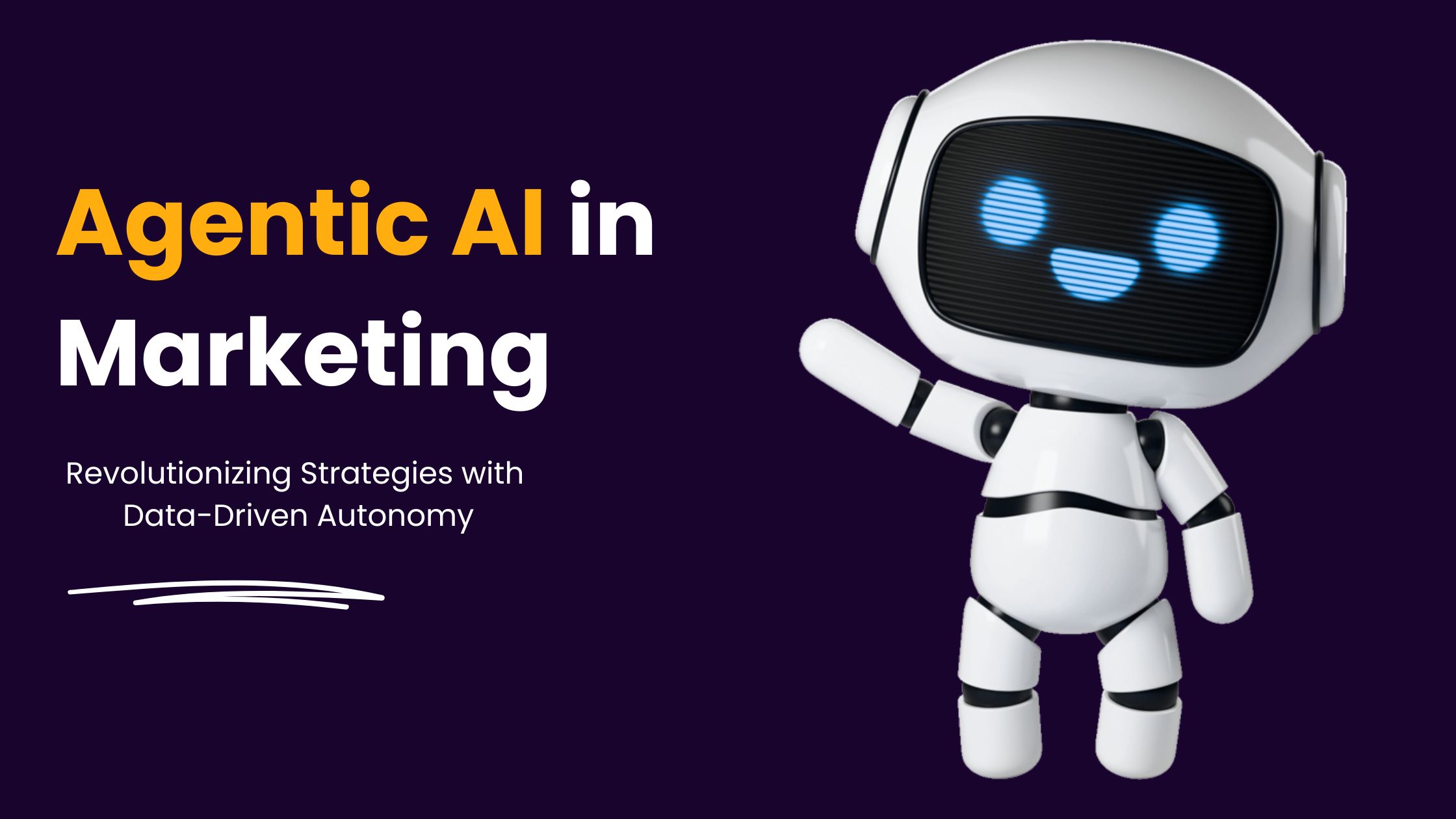Introduction
The era of agentic AI is arriving fast. These are AI systems that don’t just assist – they plan, act, adapt. In 2025, marketing agencies everywhere are facing pressure to adopt workflows powered by autonomous agents. CMOs who resist could fall behind.
This post explains what agentic AI means, how it’s transforming agencies, what risks it brings, and what CMOs must do now to stay competitive.
What Is Agentic AI?
- It refers to AI that carries out multi-step tasks autonomously, makes decisions, adapts to feedback without constant human oversight.
- It differs from tools like basic chatbots or static automation; it can plan, learn, and adjust.
- Market outlook: agentic AI market valued around USD 6.96–7.06 billion in 2025, expected to grow at ~43-44% CAGR to 2030-2032.
How Agentic AI Is Disrupting Marketing Agencies
- Faster, more scalable personalization
Embedded agents can analyze customer data (behavior, context) and deliver personalized content/campaigns at scale. Example: Simon AI’s platform uses agents to automate customer segmentation & engagement. - Workflow shifts
Traditional agency roles (manual campaign setup, iterative content review) get restructured. Agents may optimize in real-time, suggest creative adjustments, even automate parts of campaign execution. - Decision velocity increases
With agents monitoring signals & trends, responses to market changes (e.g. competitor moves, social sentiment shifts) become faster. - Cost structure implications
Agencies investing in agentic AI might reduce labour cost in some areas but will need investment in infrastructure, data quality, AI governance, talent.
Risks & Challenges
- Data quality & structure: Agentic AI requires clean, well-organized data. Poor data causes bad decisions.
- Ethical concerns: Bias, fairness, transparency issues. Agents need oversight.
- Talent gap: You’ll need people who understand AI, can audit agent behavior, integrate AI tools.
- Overdependence risk: Blind trust in autonomous agents can lead to strategy misalignment or brand inconsistency.
What CMOs Should Do Now
- Audit current tools & data readiness
See which parts of your tech stack/data pipelines can support agentic automation (customer data platforms, CRM, real-time performance metrics). - Start small pilot programs
Pick one campaign or segment and run with agentic AI involvement. Measure outcomes, refine. - Invest in hybrid teams
Combine human strategic thinking + creative with AI-enabled execution. Keep humans in the loop for oversight. - Governance & transparency
Define standards for what agents can decide. Monitor agent actions. Ensure brand voice & values aren’t compromised. - Upskill & recruit
Bring in staff with AI literacy. Train existing teams on autonomy, data science, monitoring AI tools.
Case Examples & Market Trends
- Simon AI launched an agentic marketing platform that automates complex segmentation & engagement workflows.
- Market studies predict agentic AI will move from pilot stage into mainstream in agencies & enterprise.
Conclusion
Agentic AI is not “maybe later” it’s transforming how marketing gets done already. CMOs must move from curiosity to action. Audit, experiment, govern. Those who wait risk being overtaken.
Action item: Identify one marketing process in your agency that could benefit from agentic AI in the next 30 days. Begin your pilot.


